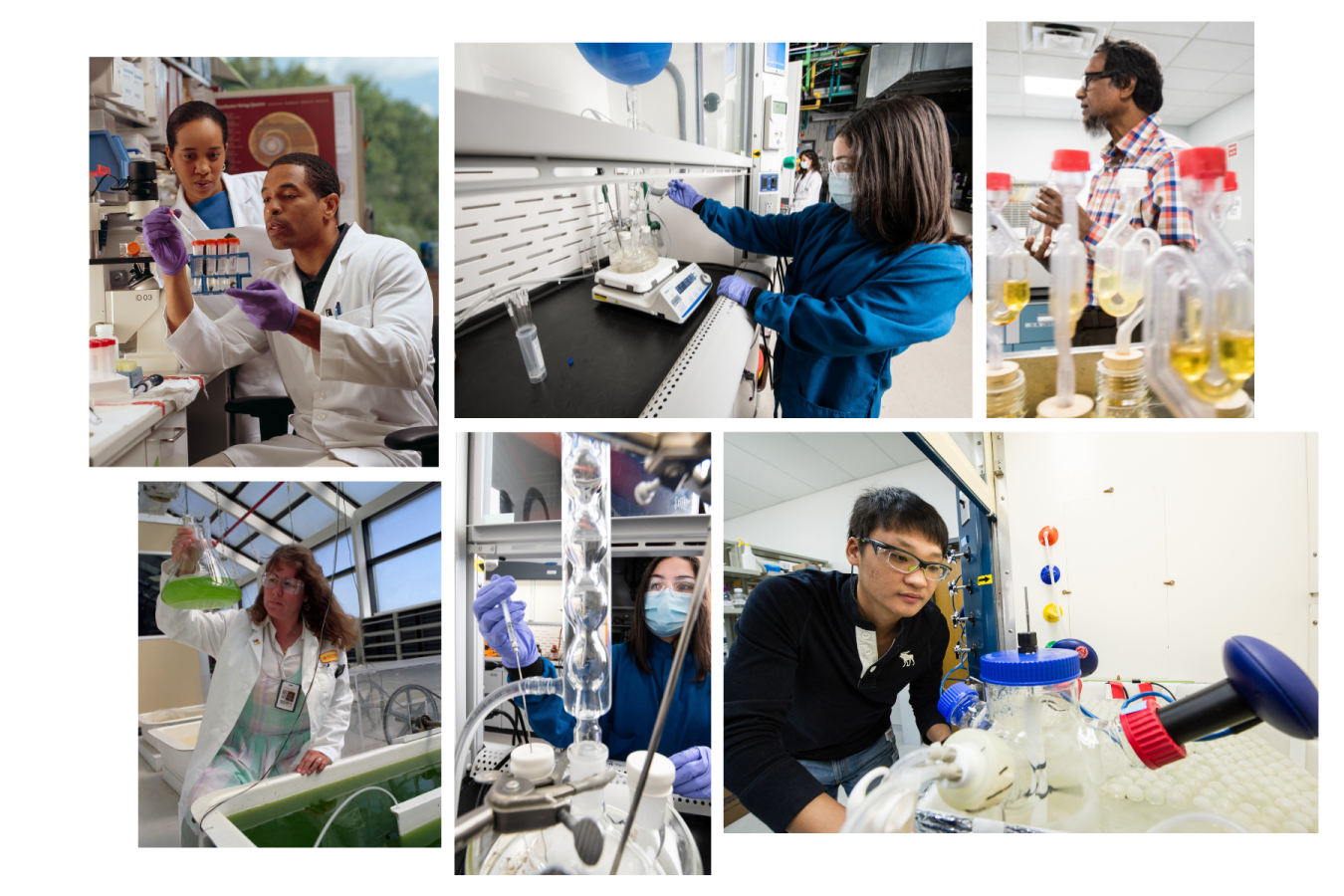
Author: Sheila Dillard, Communications and Stakeholder Engagement Lead
Read Sheila's bio ►
Meet the other bloggers ►
Return to Bioprose blog ►

BETO supports STEM education and energy literacy, and works to ensure that underrepresented and underserved students have equal learning and career opportunities. Photo courtesy of NREL
Black History Month recognizes, celebrates, and reflects on the contributions and impacts that African Americans have made to strengthen the nation’s economic and social infrastructure. Entrepreneurial thinking and an innovative spirit from diverse backgrounds are critical to addressing the challenges that affect communities across the country and ensuring the solutions deployed are fully inclusive. The U.S. Department of Energy's (DOE) Bioenergy Technologies Office (BETO) is committed to advancing energy security and economic growth through the development of careers and education resources and by offering training opportunities to meet the needs of a growing bioenergy workforce. As we celebrate Black History Month, BETO is spotlighting partnerships with historically Black colleges and universities (HBCUs) and minority-serving institutions (MSIs) that are developing innovative and transformational clean energy technologies, creating well-paying jobs, and supporting communities across the nation.
BETO-Funded Projects with HBCUs and MSIs
Fostering and leveraging the talent and innovation at HBCUs and MSIs are key to addressing clean energy priorities ranging from community waste management to the production of sustainable aviation fuels (SAF). Providing opportunities for HBCU students to advance academically is essential to building a skilled workforce that can provide solutions to complex challenges with breakthroughs in technology and sustainability.
President Biden recently signed a second Executive Order on advancing racial equity and supporting underrepresented communities by improving opportunities in rural and urban communities. The first Executive Order boosted investments in underserved communities through increased funding to HBCUs and indigenous tribes and created new programs to help close racial disparities in job and housing opportunities. In support of the Biden-Harris administration’s priorities, BETO continues to invest in initiatives aimed at increasing STEM inclusion, expanding research opportunities, and supporting diverse solutions in the clean energy transition. A knowledgeable and well-trained workforce is essential for meeting future energy demands, and a growing bioenergy industry has the potential to create opportunities for individuals with diverse skills and training.
Several BETO-funded projects are making an impact by providing opportunities for skill expansion and research with HBCUs and MSIs:
- Researchers from North Carolina State University, the National Renewable Energy Laboratory (NREL), the University of Puerto Rico, and the Fearless Fund want to turn wood waste from Hurricane Maria and excess seaweed on Caribbean shorelines into SAF and graphite, an important component in electric vehicle batteries. The multi-institutional research team goal is to empower a region already impacted by climate change and often underrepresented in economic development.
This project has the potential to not only mitigate waste streams in coastal communities but to create new jobs and stimulate underserved students’ interest in bioeconomy career pathways. The project will include recruitment of graduate students from HBCUs and MSIs, including North Carolina Agricultural & Technical College, North Carolina Central University, and the University of Puerto Rico.
- Researchers from Idaho National Lab, the University of Cincinnati, and Tuskegee University are collaborating on a project to develop high-precision municipal solid waste (MSW) sorting, fractionation, and formulation technologies for biochemical conversion. The project will potentially impact MSW management and waste-to-energy industries, in addition to providing guidance for new high-precision MSW sorting and fractionation equipment design and low-cost, conversion-ready feedstock development.
Waste streams are potential high-impact resources for the domestic production of biofuels, bioproduct precursors, heat, and electricity. Waste represents a significant and underused feedstock for renewable fuel and product generation. BETO’s efforts aim to improve waste-stream management by closing waste loops and generating additional value streams.
- BETO has selected three projects under an interagency agreement with the Minority Serving Institution STEM Research & Development Consortium (MSRDC). Selections include two HBCUs, North Carolina Agricultural and Technical College and Florida A&M University with projects focusing on algal systems, terrestrial waste feedstock technologies, and catalyst development for biofuel production.
DOE has leveraged the inter-agency agreement to reduce barriers to entry for Minority Serving Institutions (MSIs) and increase research partnerships. Formed in 2014 under a cooperative agreement by the U.S. Army, MSRDC is a nonprofit consortium of over 70 MSIs. The consortium facilitates basic, applied, and advanced research awards from federal agencies. Through its agreement with MSRDC, BETO has broadened its pool of project partners and funded non-traditional, emerging, and historically underfunded investigators.
BETO will continue to foster HBCU and MSI partnerships that accelerate the clean energy transition through innovation and job creation and by providing equitable opportunities to access government resources. By committing to building diversity, equity, and inclusion into project plans and community engagement, we can provide novel solutions and uncover bold new ideas for innovation to accelerate the clean energy transition.

